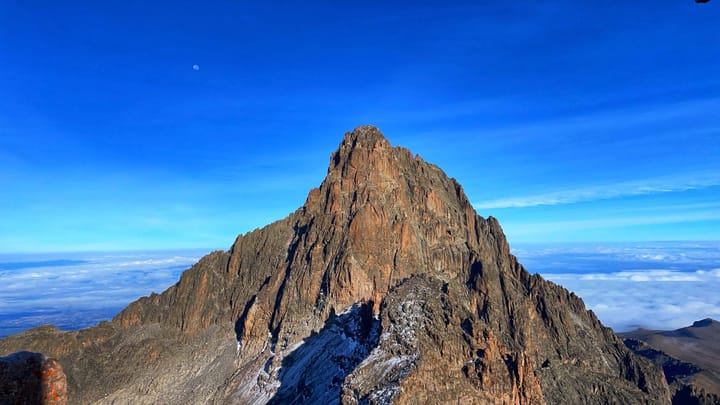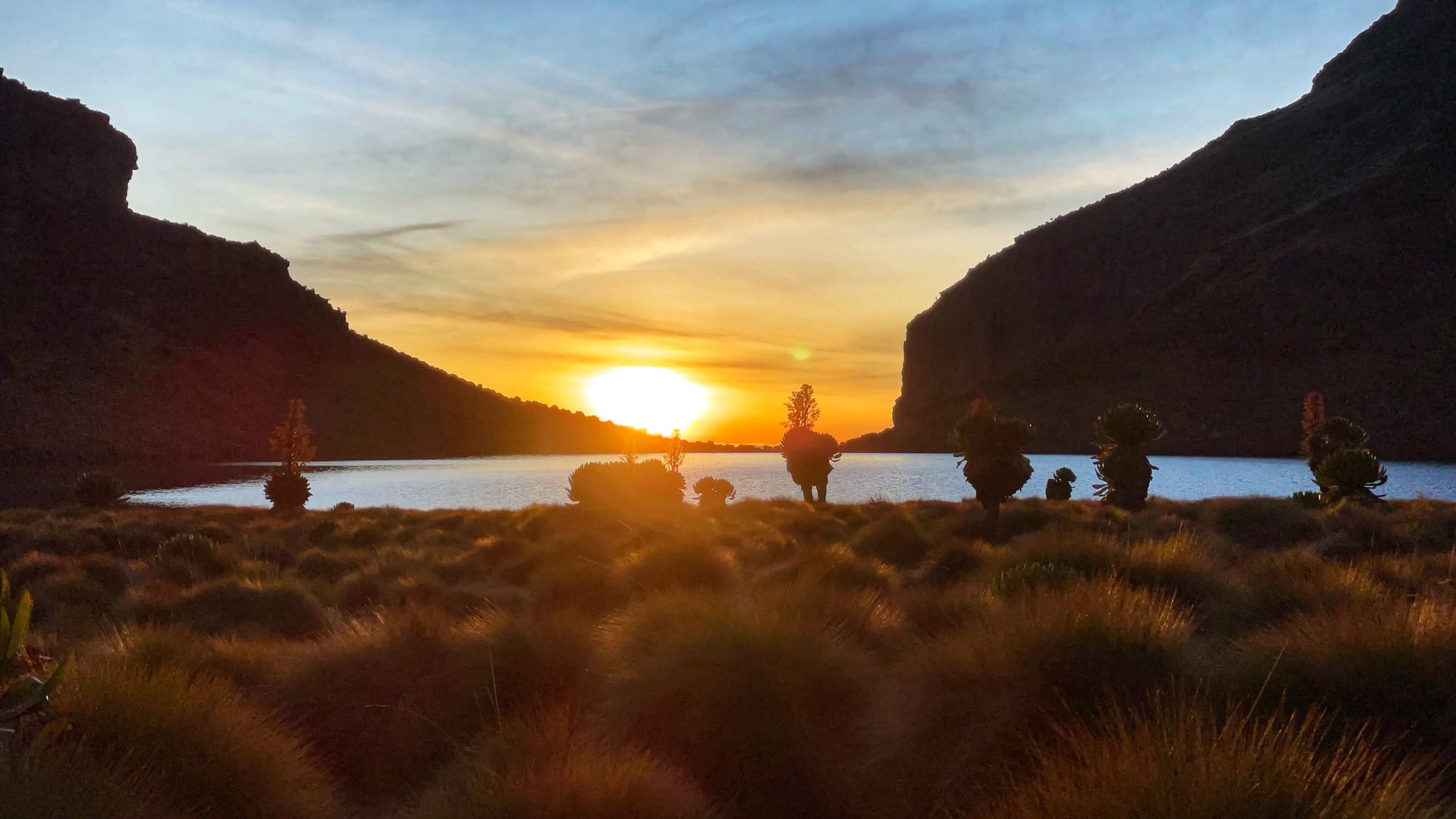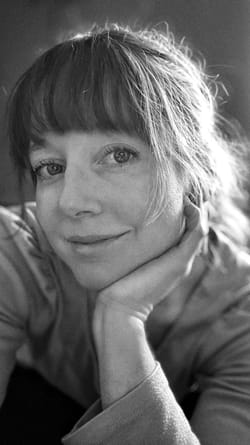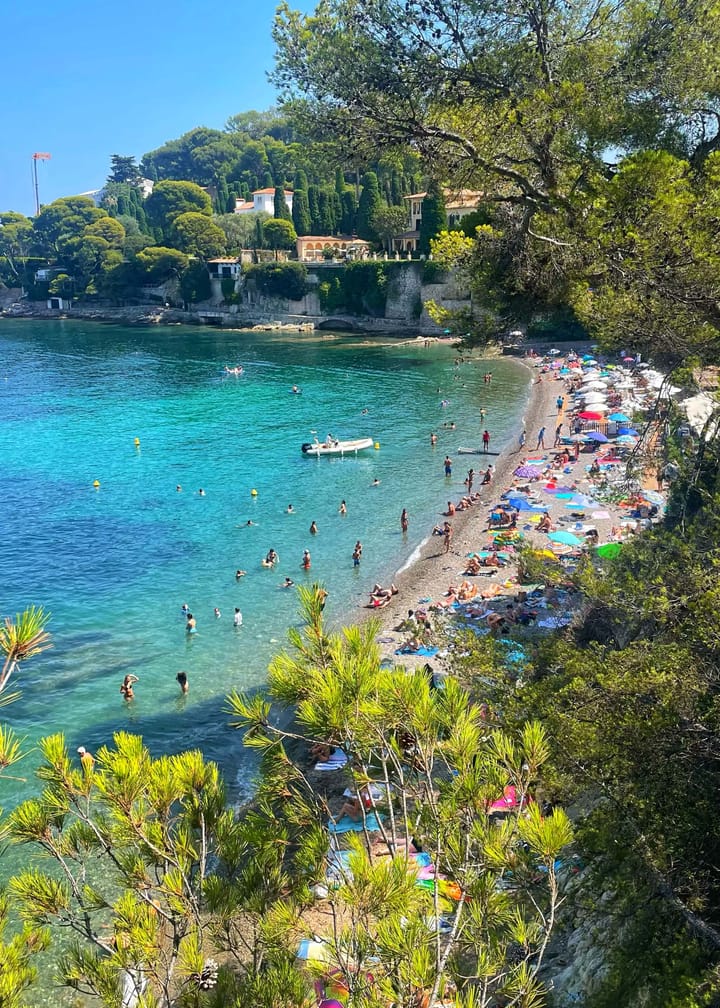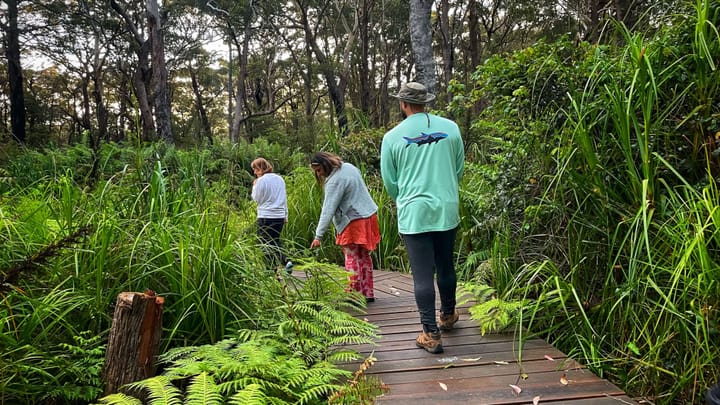Why do we climb mountains? Because they are there? Because it's something to do? Because we are curious?
Are we like chickens crossing the road – "to get to the other side?" Surely the first cases of humans summiting mountains were for utility, not sport. Is that how it all started? Someone heard the story of the Donner Party and thought, "yes, that, but for fun!"
We invented cars, we built roads. There's no need to leave our present plane of existence on our own two feet. But some of us are drawn to it – and I demand to know why.
If I sound vexed it's because I am. I am summiting Mount Kenya – and it is no picnic.
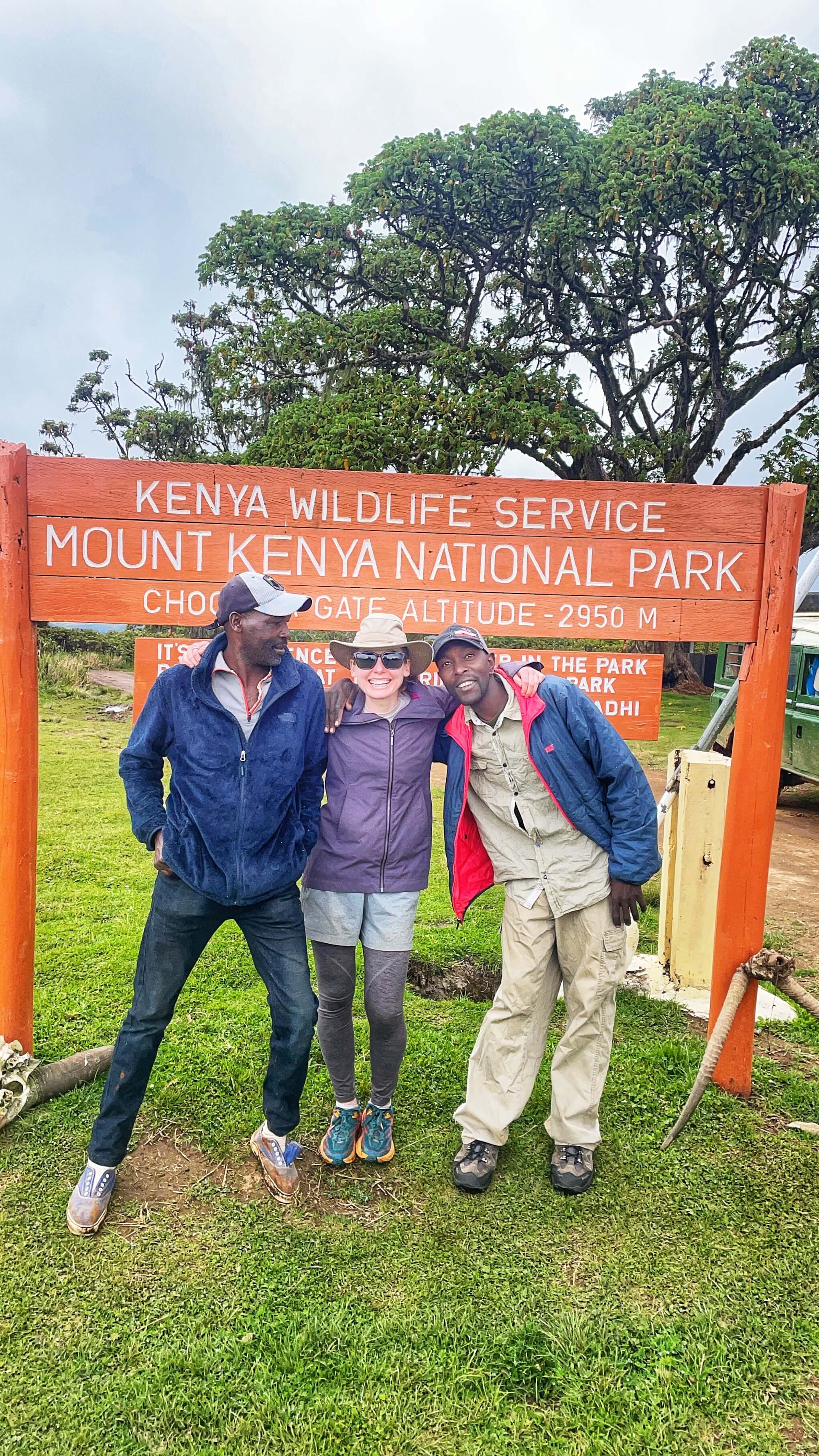
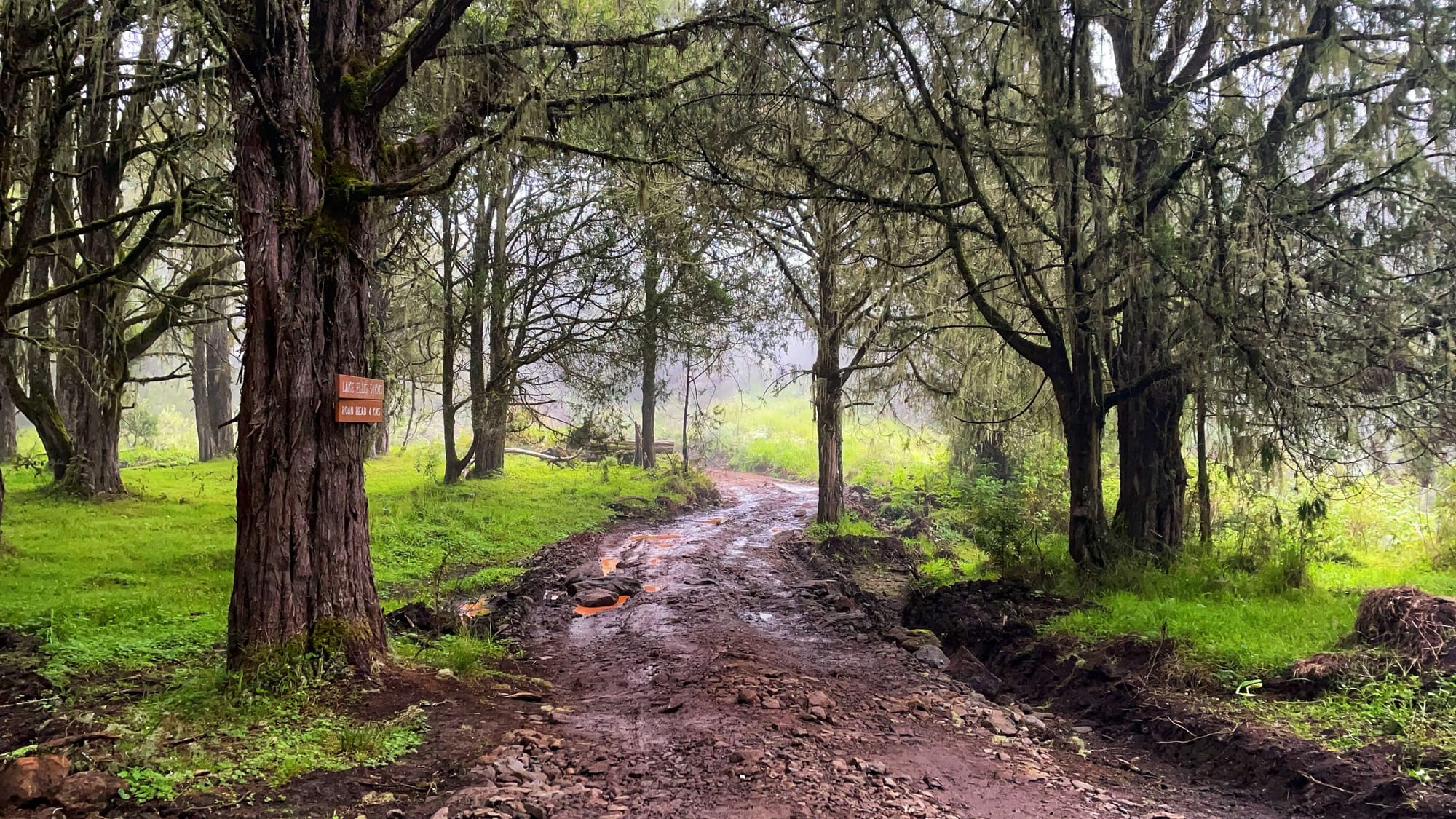
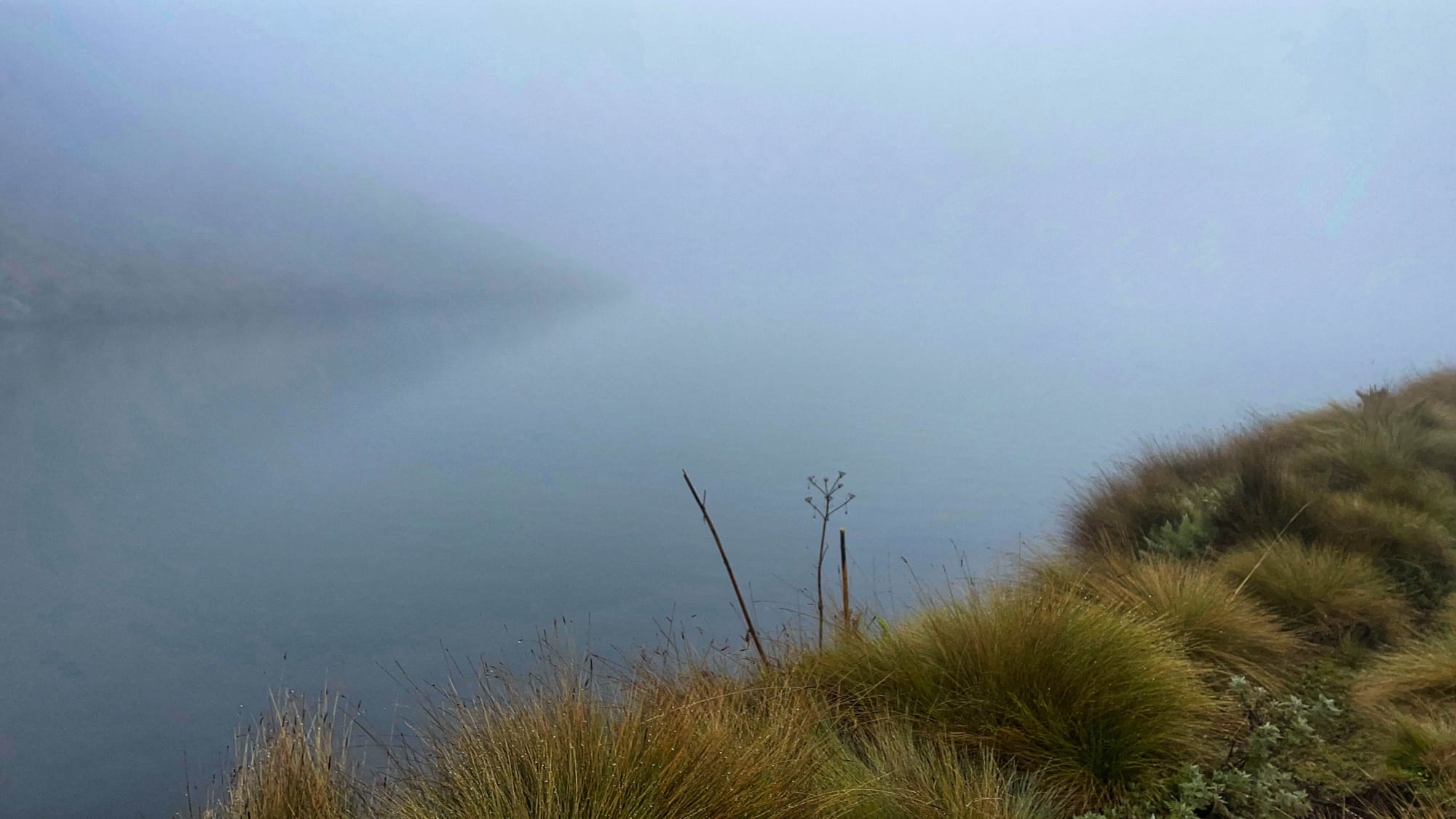
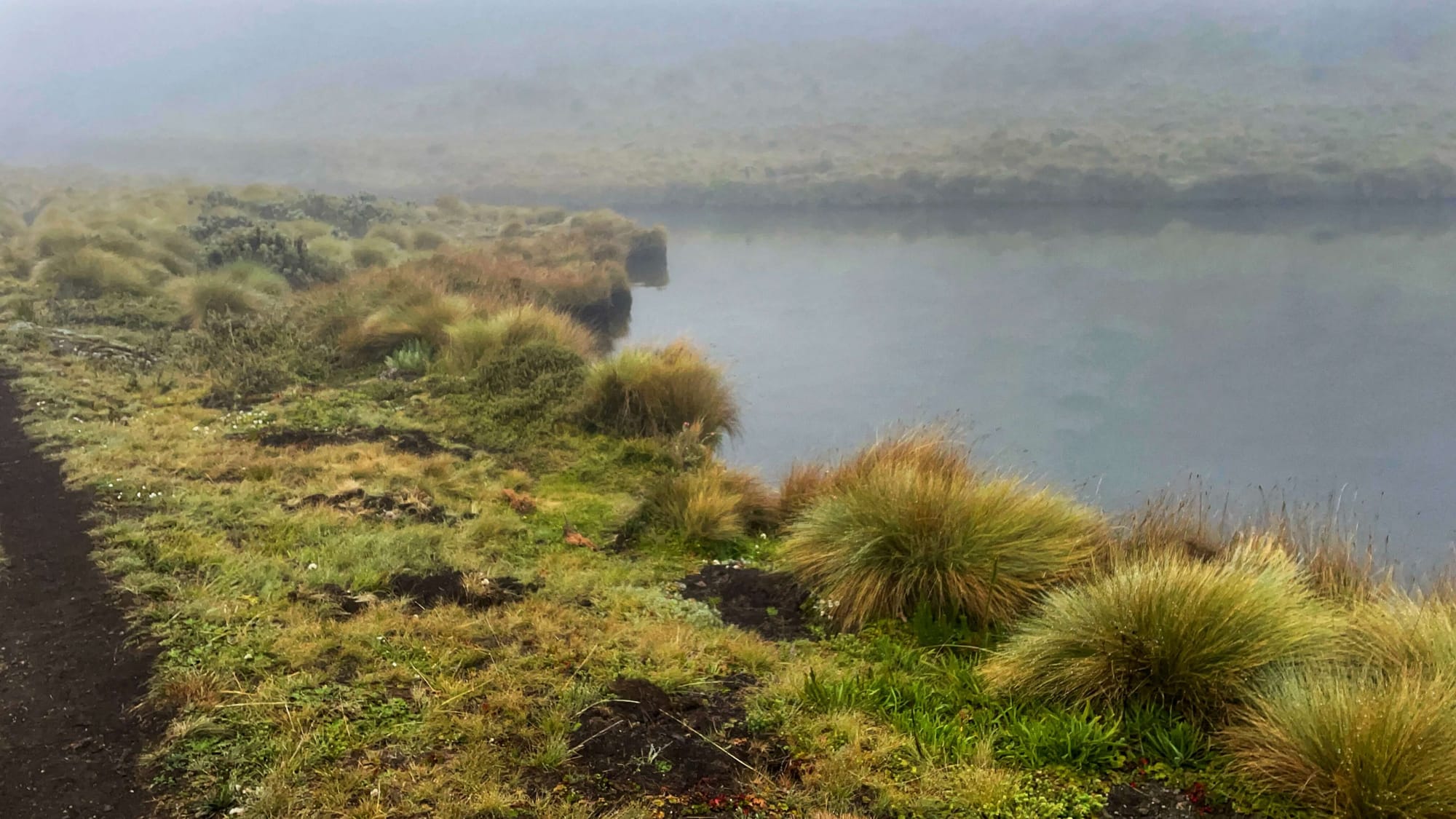
The first day was mostly hiking in the mist. This was all we could see of Lake Ellis.
When I look back at the photos it's obvious, really, what happened. On the first day of the hike we went from the town of Chogoria (1500 meters above sea level) by car to the start of the hike at Chogoria gate (2950 M ASL) and hiked to Lake Ellis (3600 M ASL).
But altitude sickness is only my first theory. My second is secondhand smoke.
"Isn't the whole point of being in the mountains to breathe fresh air?" I mutter to myself as I trudge 100 paces ahead of my guide, who is alternating between chain-smoking and hacking up a cough. Some combination of the smell and sound turn my stomach. He claims it is "just a little bug" – but to me it sounds like a permanent cry for help from his lungs.
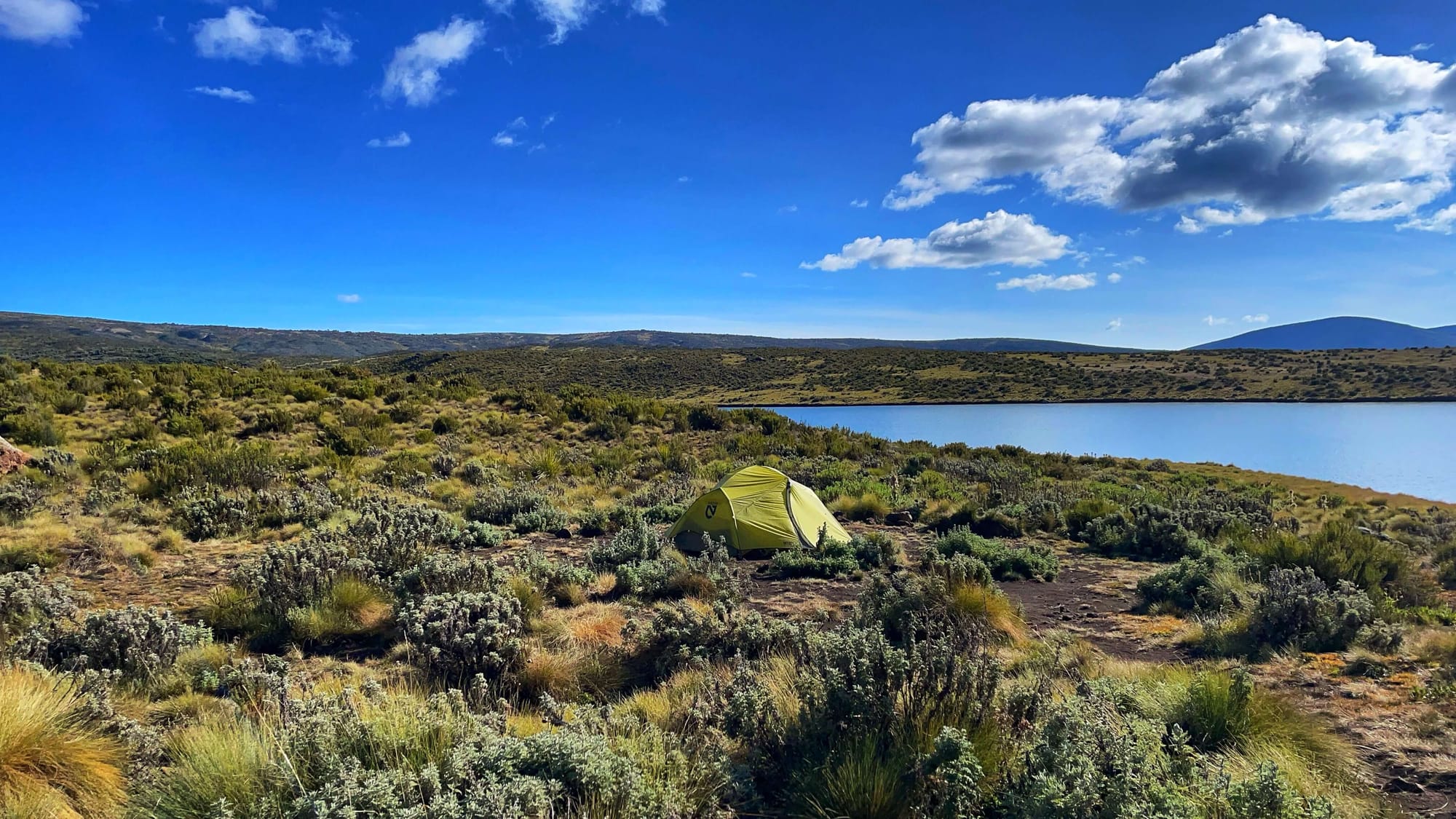
The next day we hiked to Mintos Camp (4200 M ASL), and planned to start the trek to the Lenana Peak summit (4985 M ASL) at midnight.
Yes, in hindsight, it's obvious why at around 10:00 PM on day two I started having uncontrollable diarrhea. I don't know whose plan this was but I'm inclined to think it wasn't mine – and if it was, well, what exactly was the point of hiring a guide?
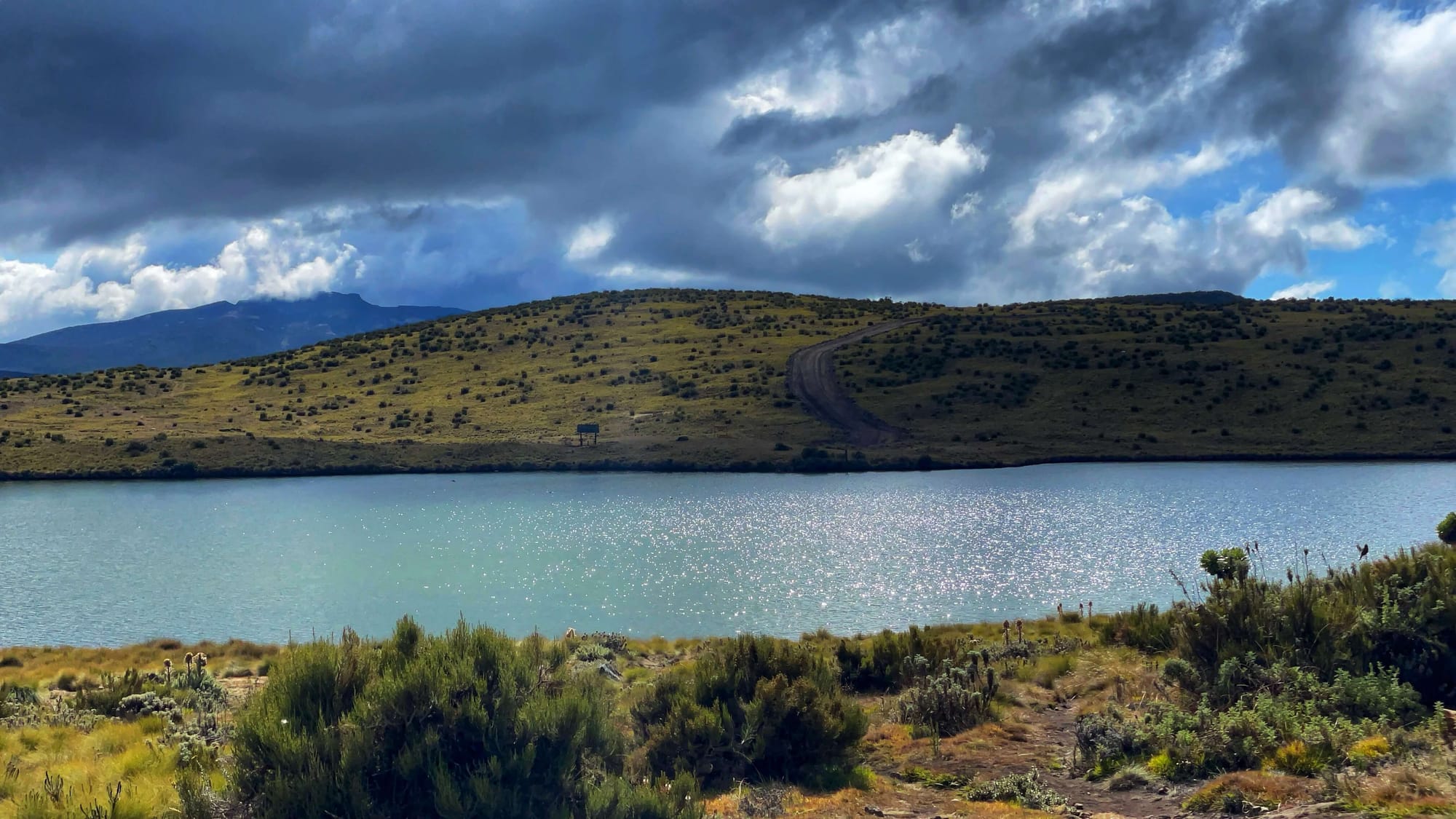

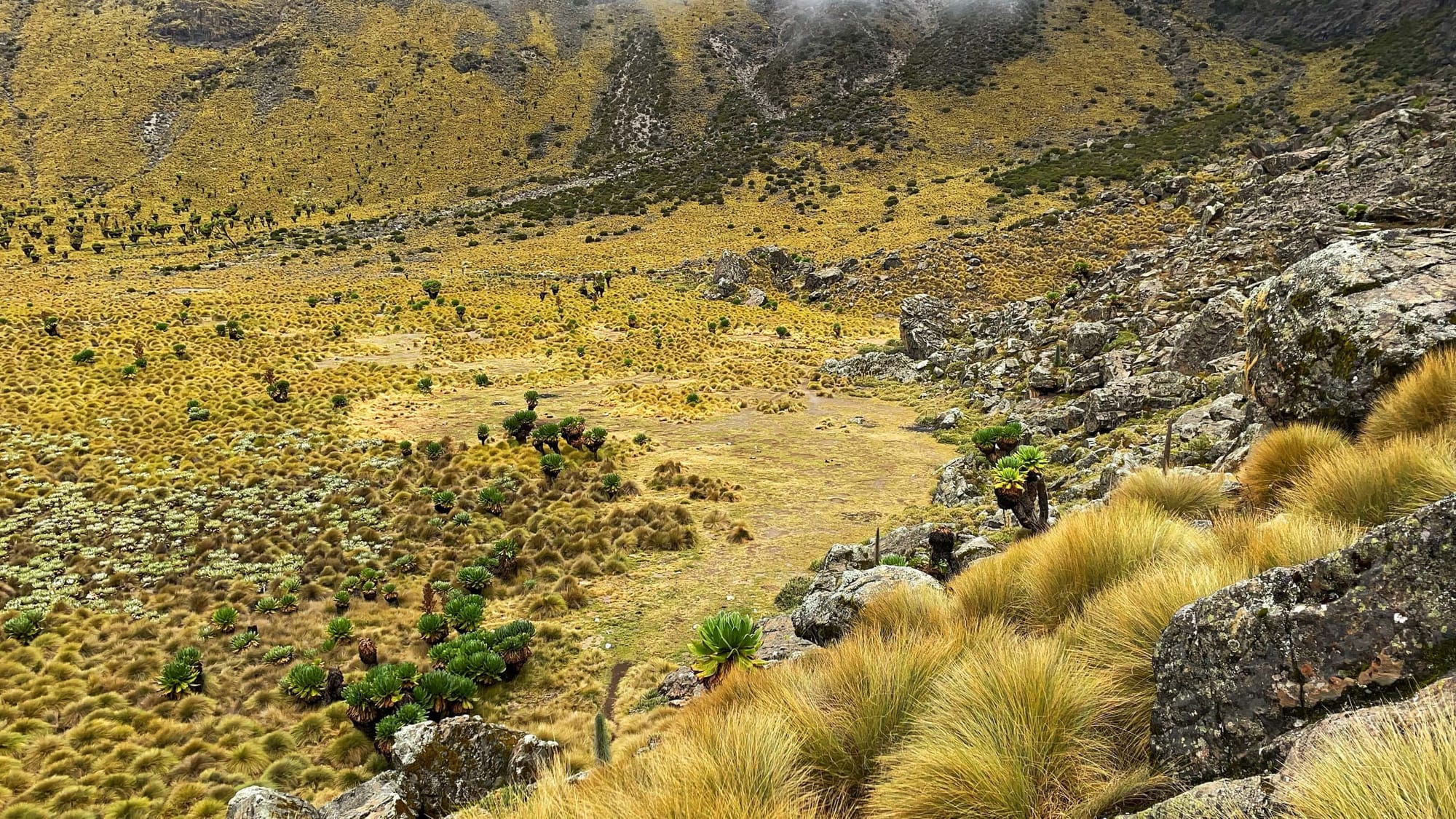
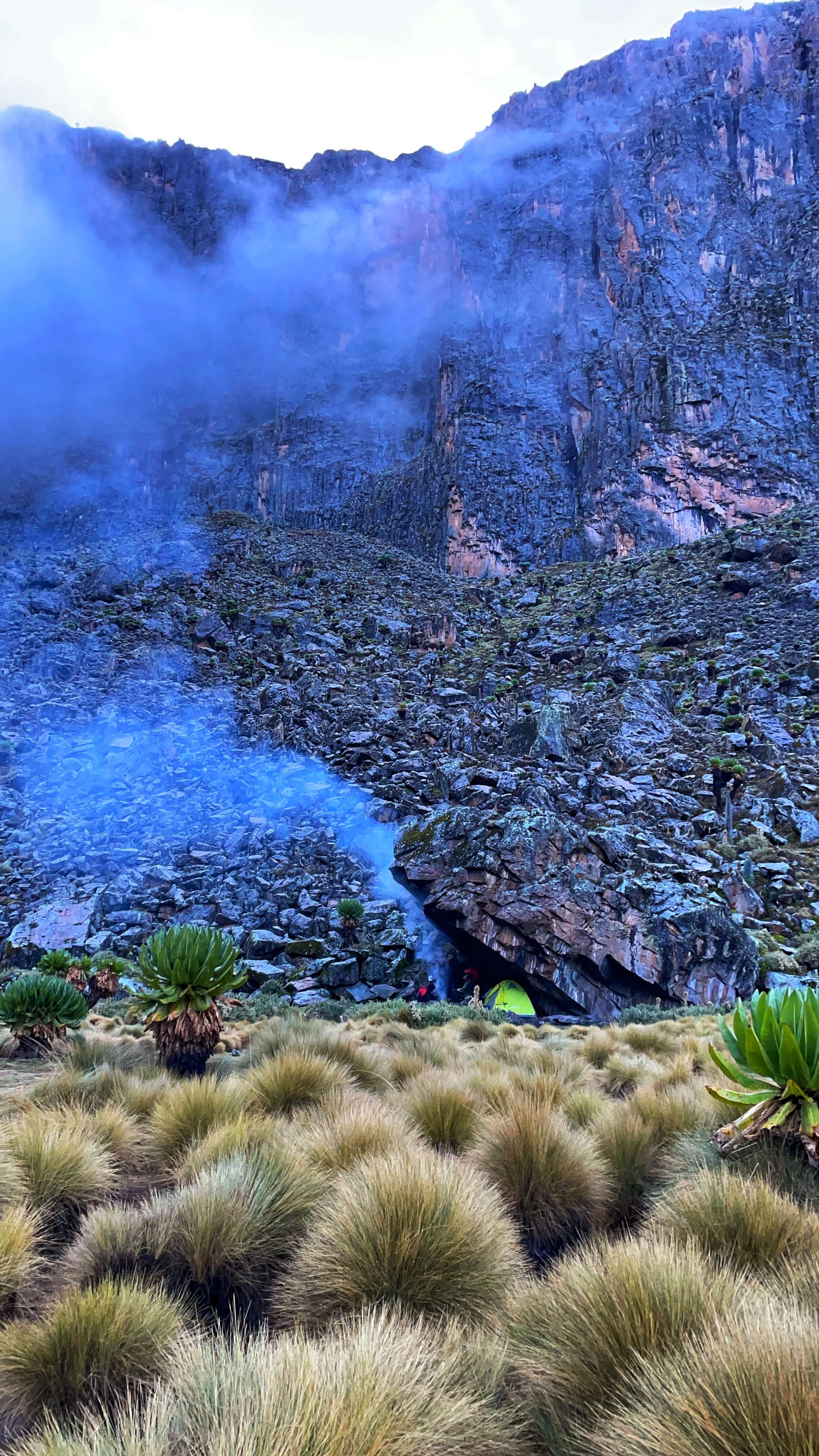
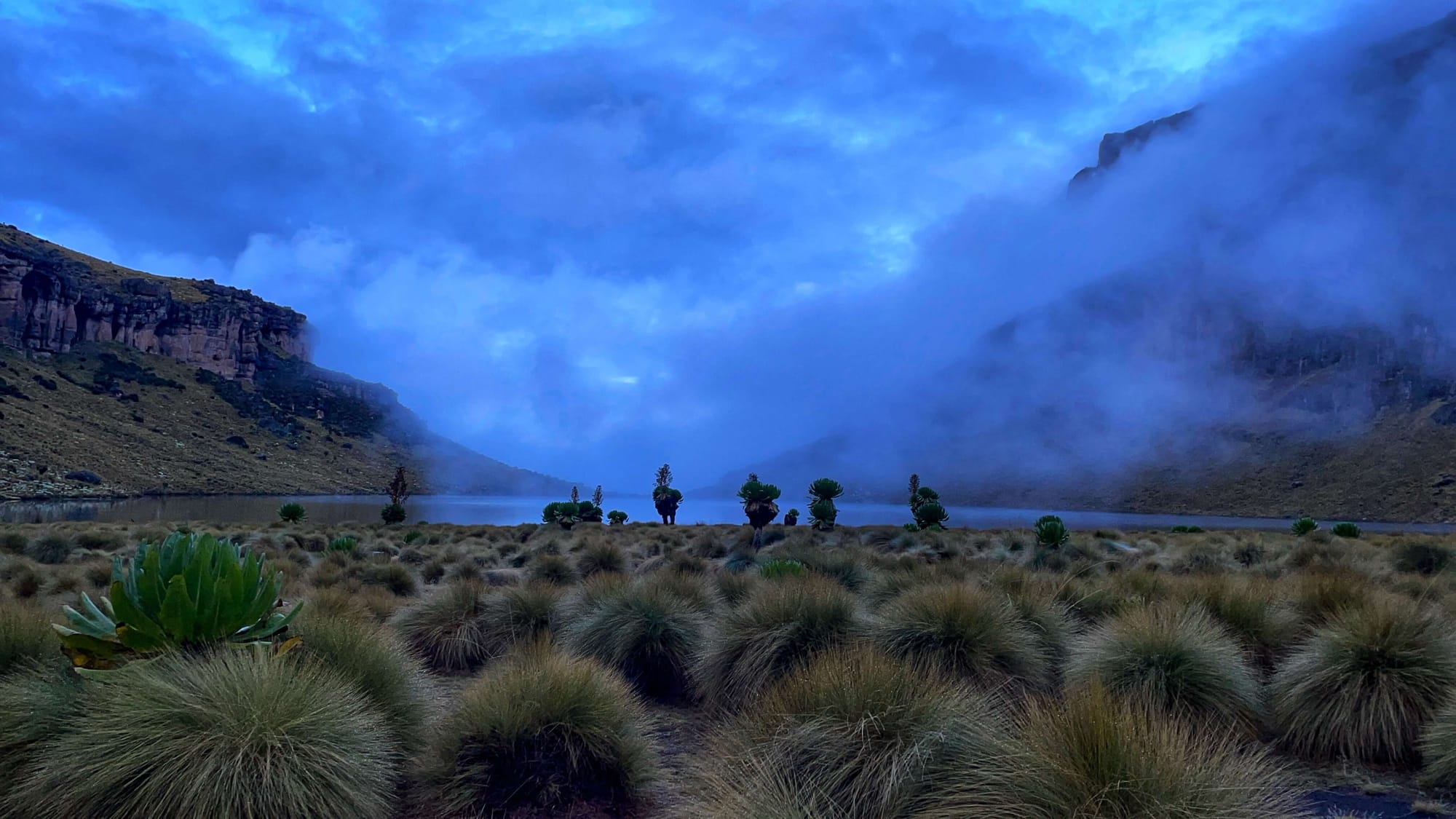
Left to right, from top | Click any image to view larger: (1) Lake Michaelson from above; (2) The clearing of Mintos Camp from above; (3) Preparing the fire at Mintos Camp; (4) The night mist rolls in over Lake Michaelson.
I "wake up" at midnight and press on anyway, determined to make it to the top, stopping in the dark to catch my breath every time my digestive tract cramps, praying I won't actually have to stop, drop and go because at somewhere between 4,200 and 4,900 M ASL in the middle of the night – it's freezing.
My guide thinks it's funny, and I think I want to push him off the peak.
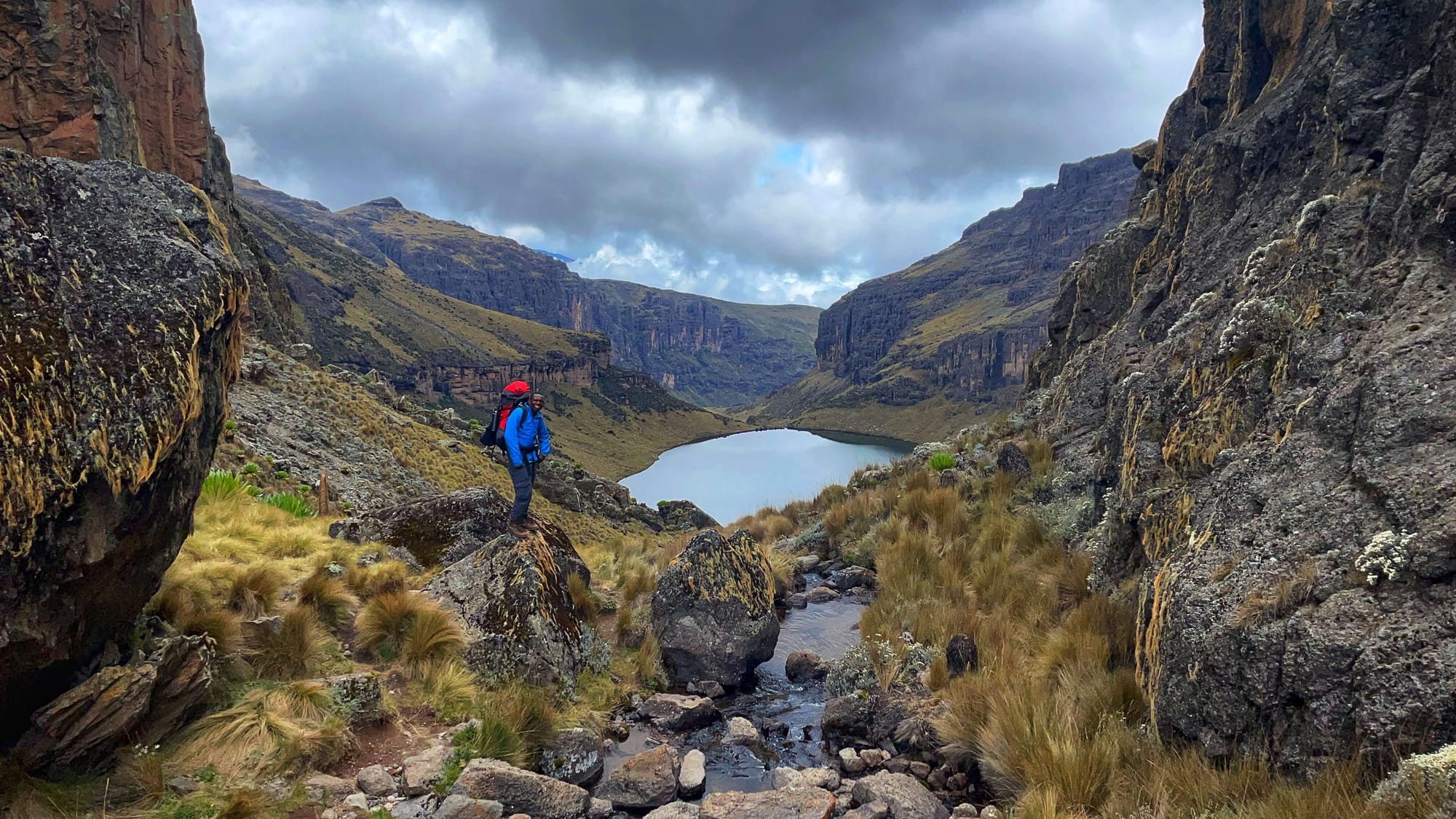
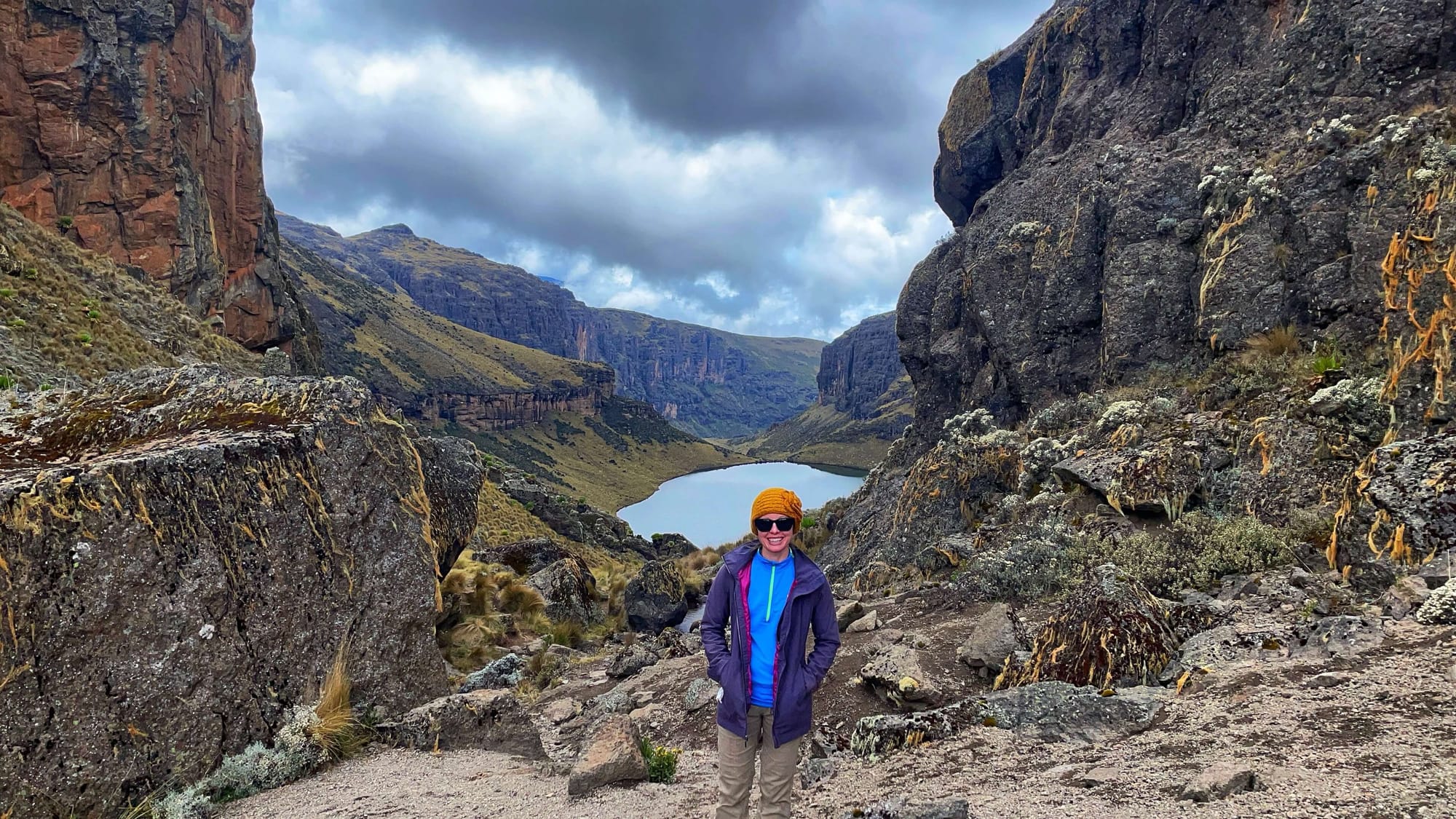
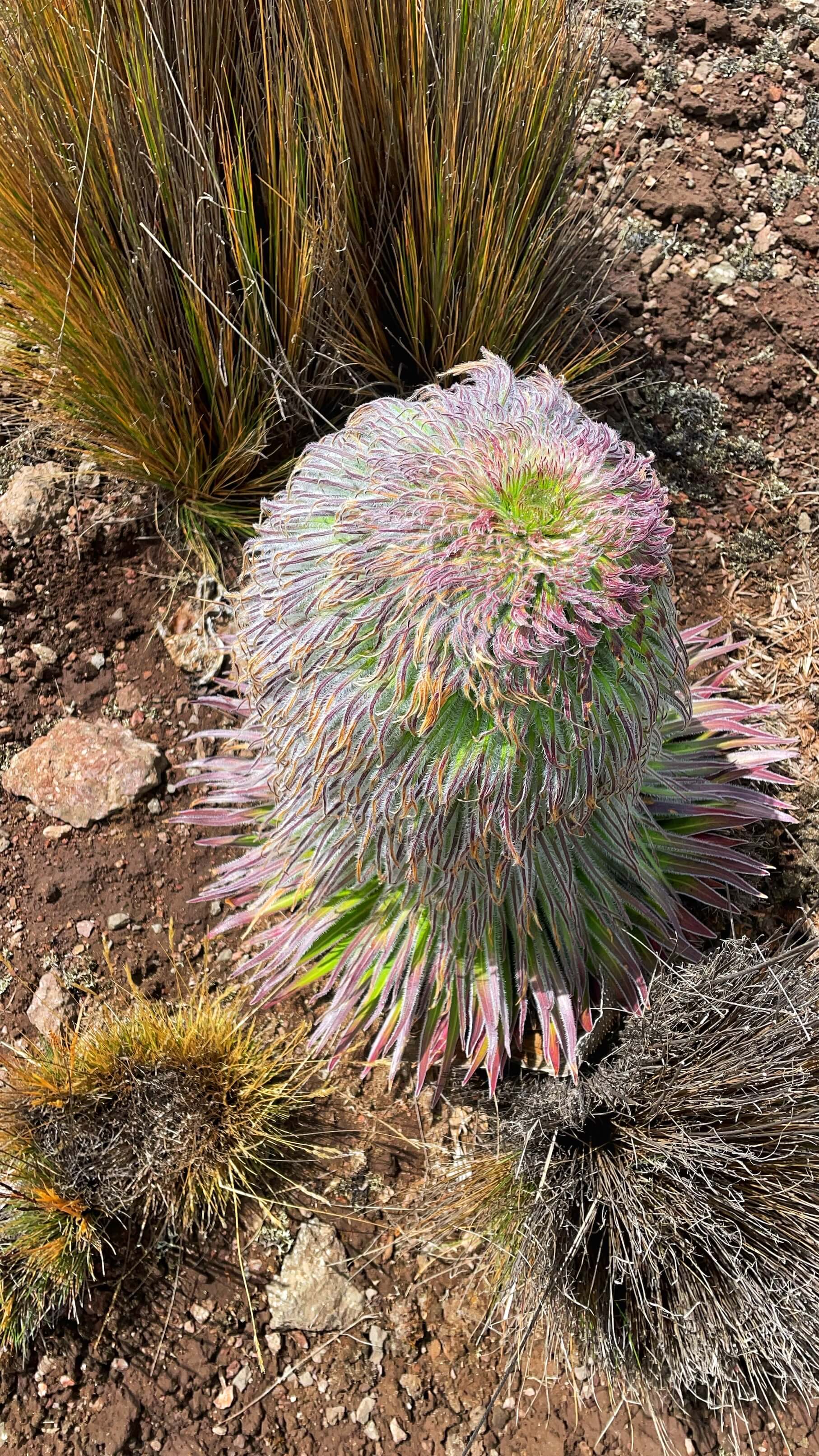
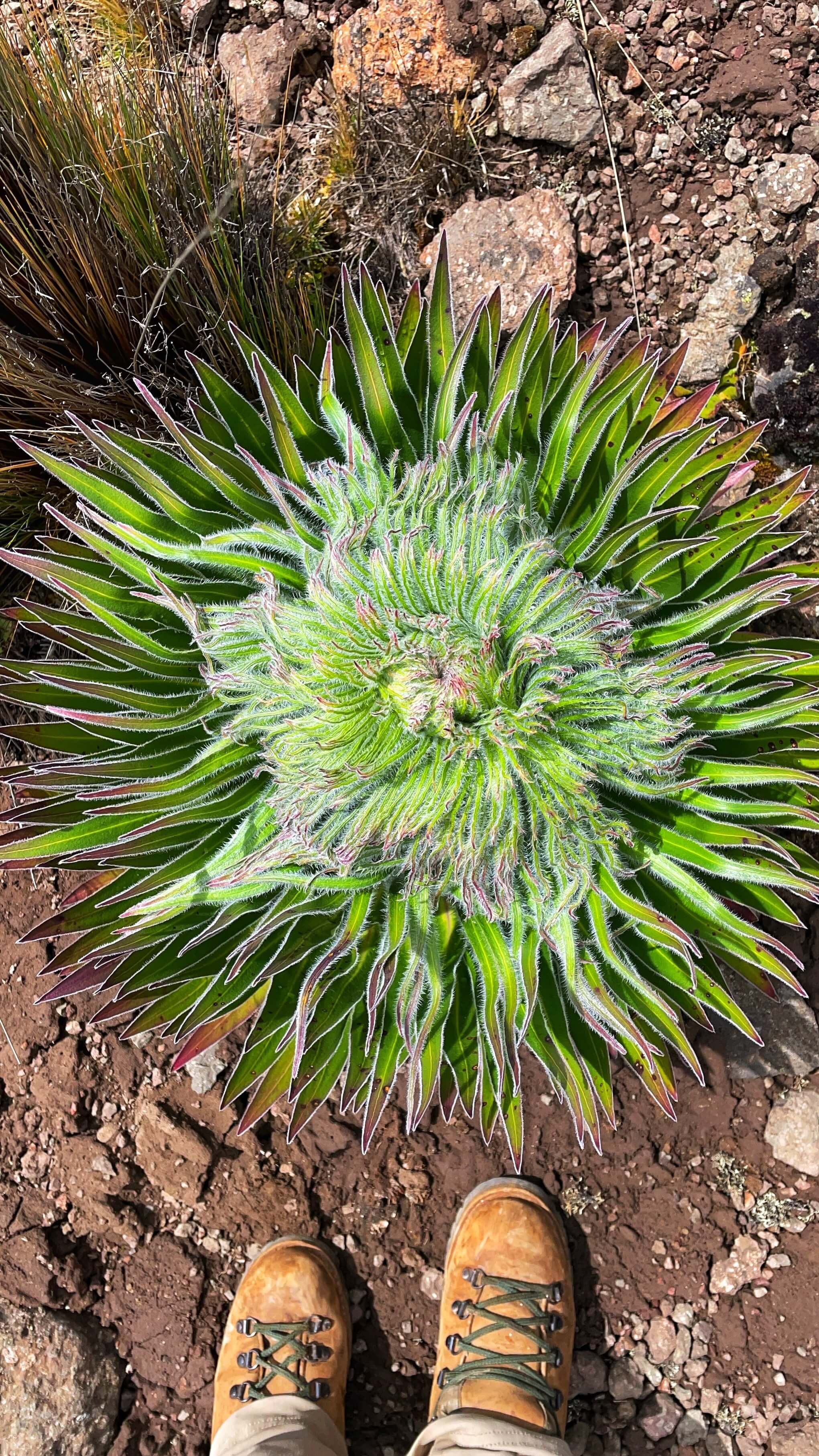
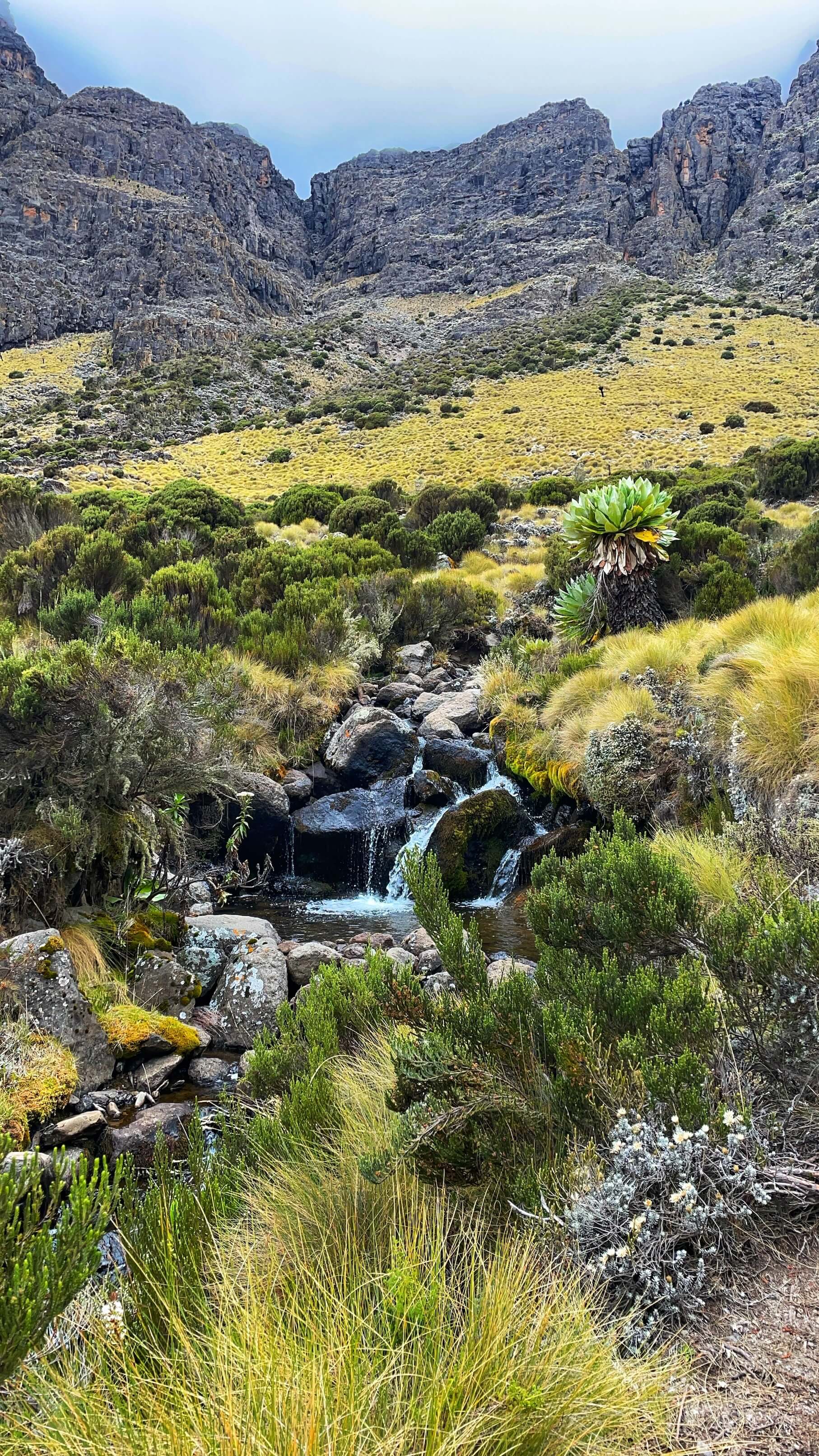
Left to right, from top | Click any image to view larger: (1) Clara Ritger with Lake Michaelson in the background; (2, 3) Tower of jewels plants at different maturities; (4) A small waterfall near Mintos Camp.
We hike, silently, in the dark, while my thoughts rage about the stupidity of climbing mountains.
Why do we do this? Because it gives us a new perspective? Wouldn't a headstand also give us a new perspective? It's a much less taxing endeavor, and yet I bet more of us have climbed mountains than learned inversions. So that can't be it.
Perhaps it is the metaphor made literal that calls us to the wild.
Like the peaks and valleys of a heartbeat on a monitor, life is climbing mountains.
The striving for the promotion at work. The long hours for a difficult client. The challenges of raising children. The marriage. Navigating seasons of change. The unexpected diagnosis. The grief, the loss, the persistence.
As if we don't get enough mountains to climb in everyday life, we must fling ourselves into the mercy – or mercilessness – of nature and overcome those challenges too.
Eventually, my begrudging thoughts turn on myself.
Am I a failure if I don't make it to the top? Is the experience of getting there even worth it? Isn't it about the journey not the destination? What if I don't even like the view? What if we don't even make it for sunrise? What if this was a mistake?
"What if we just rest and hike in the daytime in case I feel better?" I wonder out loud.
"No, it's better to go for sunrise."
"Why?"
"It's a nicer view."
"I don't even know if at this rate we'll make it for sunrise."
"Better to keep hiking anyway."
"Why?"
"It's easier."
"In the dark? I can't see anything."
"Yes. Because if you can see, then you can see how far it is, and it's harder to stay motivated."
"For you maybe."
"No, for everyone. That's why we always summit at night. So you can't see, and you just keep going."
I'm flabbergasted. The whole point of hiking is looking around at the beautiful flora and fauna. I'm bummed, in fact, that by hiking at night we're missing it.
By having nothing to look at, my mind is looking in at itself.
I would much rather have something else to look at.
Is this really a proven, psychological fact?
I decide that I must be the outlier, as someone who is self-motivated, has climbed many mountains, and surely will climb many more – unless of course I die from the stupidity of climbing this one in the dark.
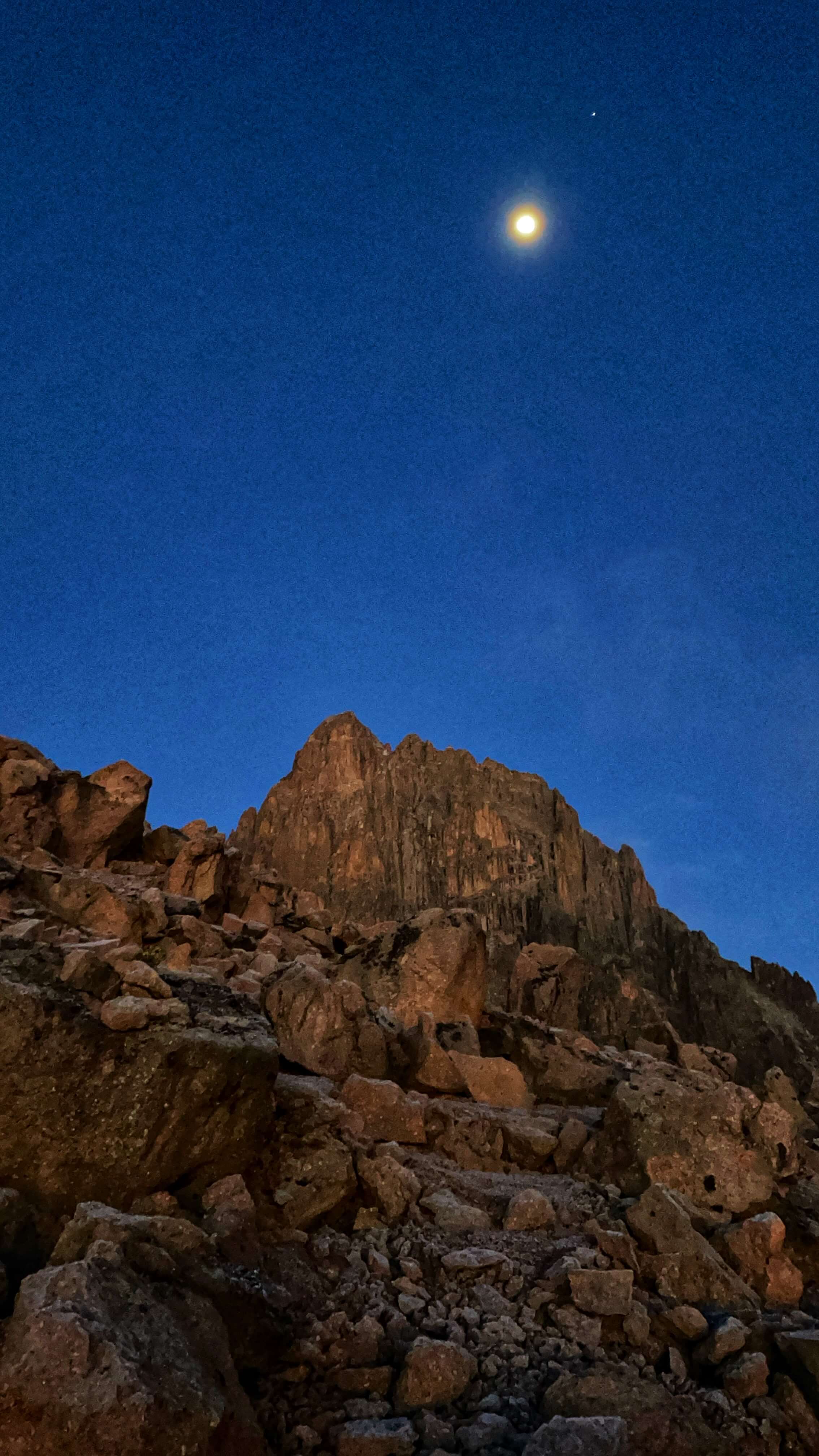
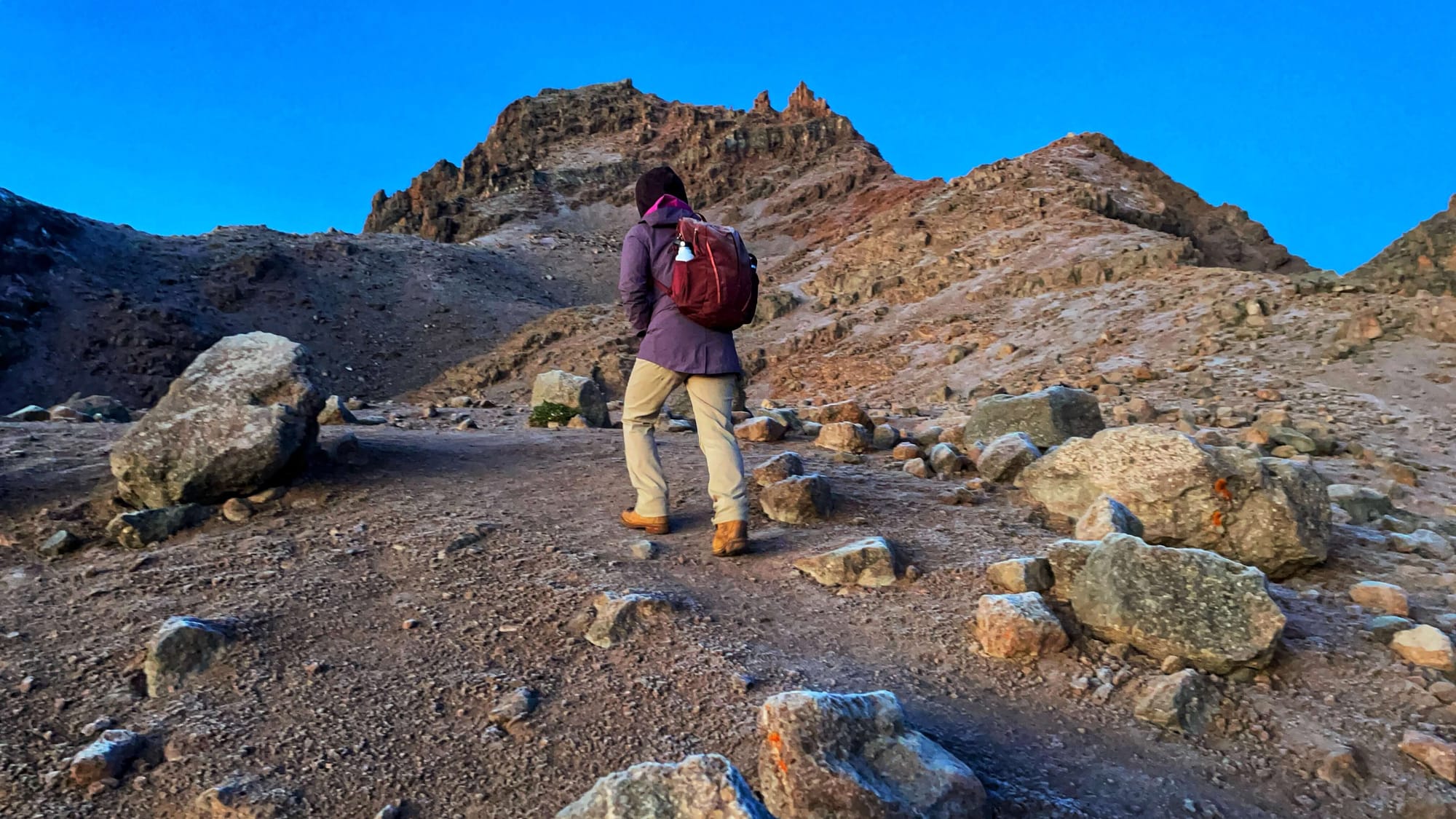
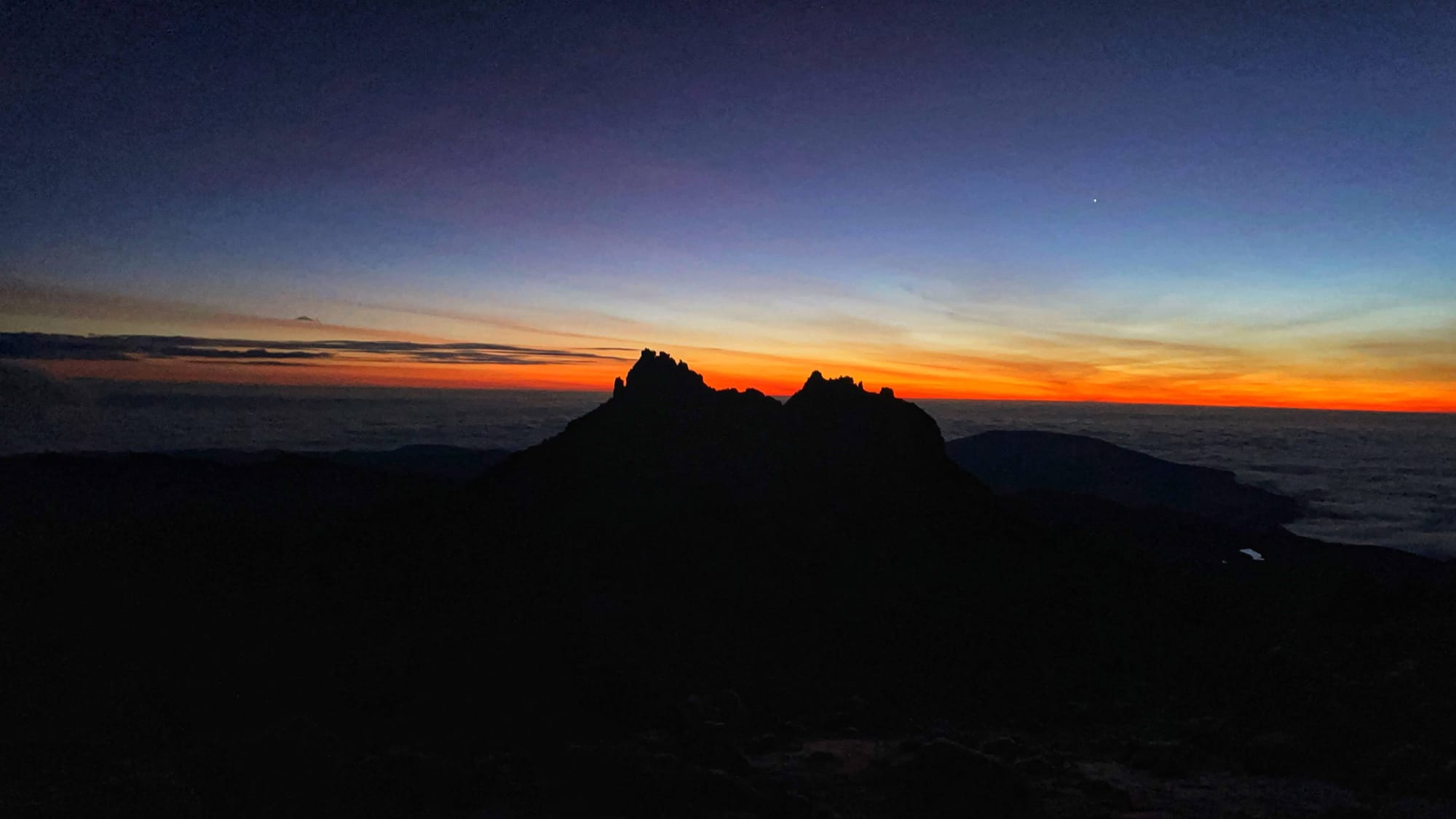
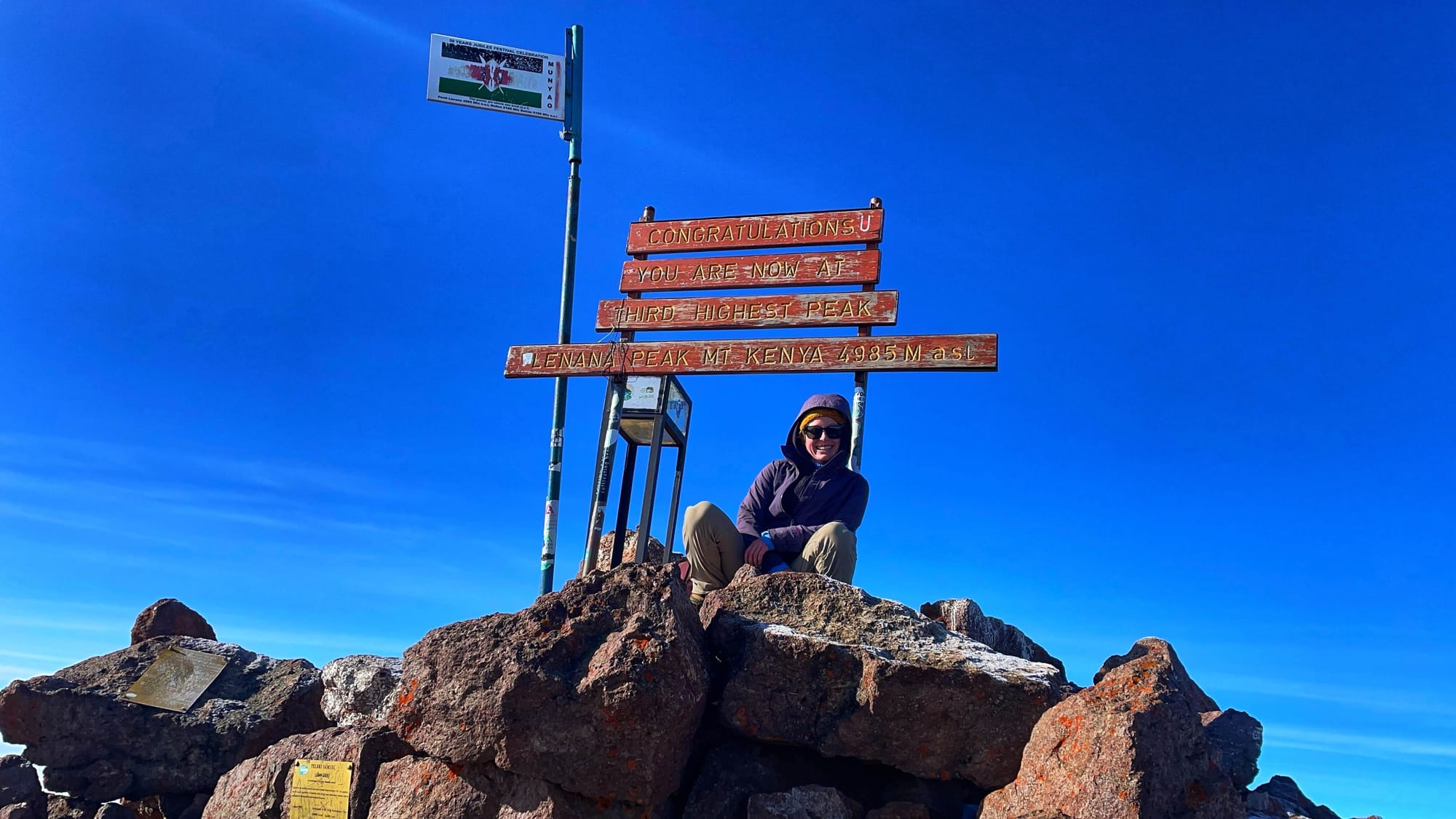
Fun Fact: Point Lenana is only the third highest point of Mount Kenya, at 4,985 M ASL. Point Batian is the highest at 5,199 M ASL -- but requires rock climbing to reach, so most people summit Lenana instead.
We don't make it to the summit for sunrise, but we do make it to the summit. This was the best I could do for photos: be in them. I couldn't even eat the peanut-butter-honey-banana-chapati snack they packed me. I couldn't bear to see it come out the other end.
"You must eat. You are tired."
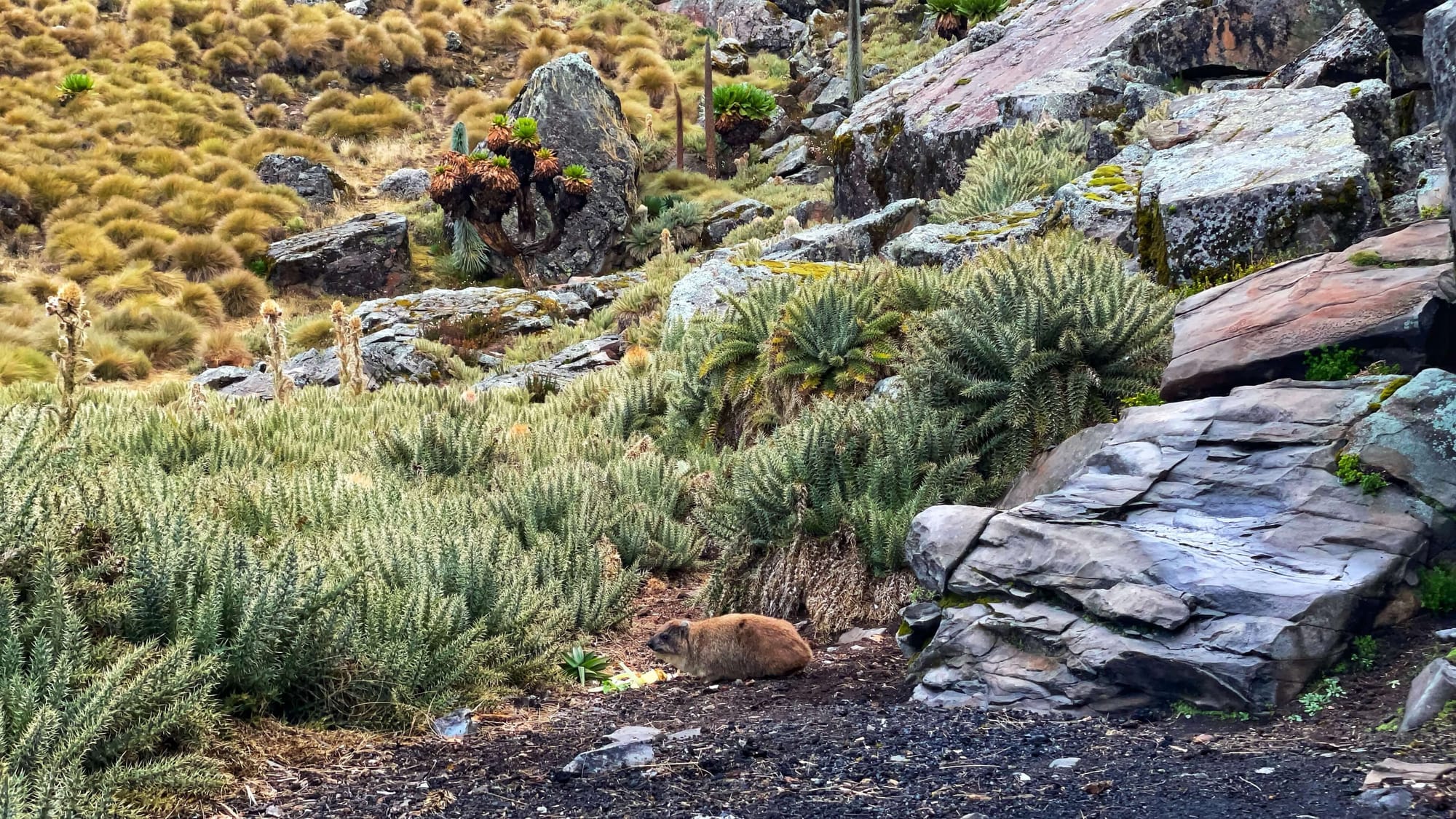
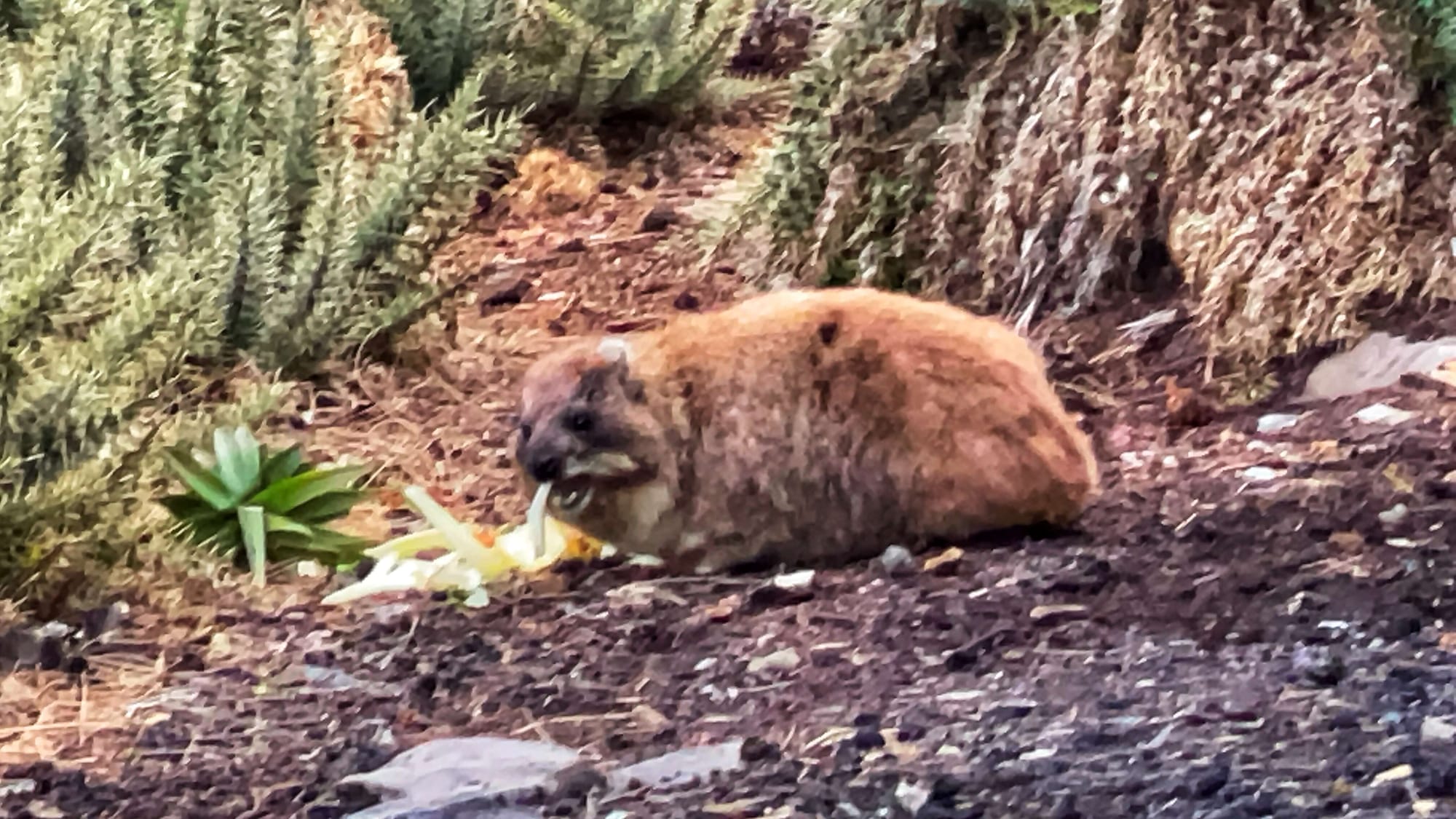
At least the rock hyrax had a picnic on Mount Kenya.
My third theory is that my body was trying to tell me something.
Exactly two months prior, I left the U.S. I planned to see the world, and to heal. I had a spreadsheet for the first goal. I made a list of all of the natural wonders of the world that I wanted to see before I died, and in the column next to them, I ranked them 1-4. In the column after that, I wrote down what country they were in, and then what region of the world that country was in, and then sorted the spreadsheet to see which region had the most number 1's. Africa was at the top – by a landslide.
And I was doing it! Last month, I saw the gorillas. Last week, I saw The Great Migration. Now, I was hiking Mount Kenya!
I was checking sights off of a spreadsheet, but I wasn't walking my way to a cure. I think my body was trying to remind me what I came here to do.
The call of the wild doesn't just come from the outdoors.
The wild of my body willed me to slow down. To be present. To listen. To integrate.
To digest.
If you aren't going to digest your life experiences, then perhaps you don't need your digestive system, it said to me with a hint of glee, as it evacuated my entrails.
But I wasn't listening.
Not yet.
That was another mountain that I wasn't ready to climb.
